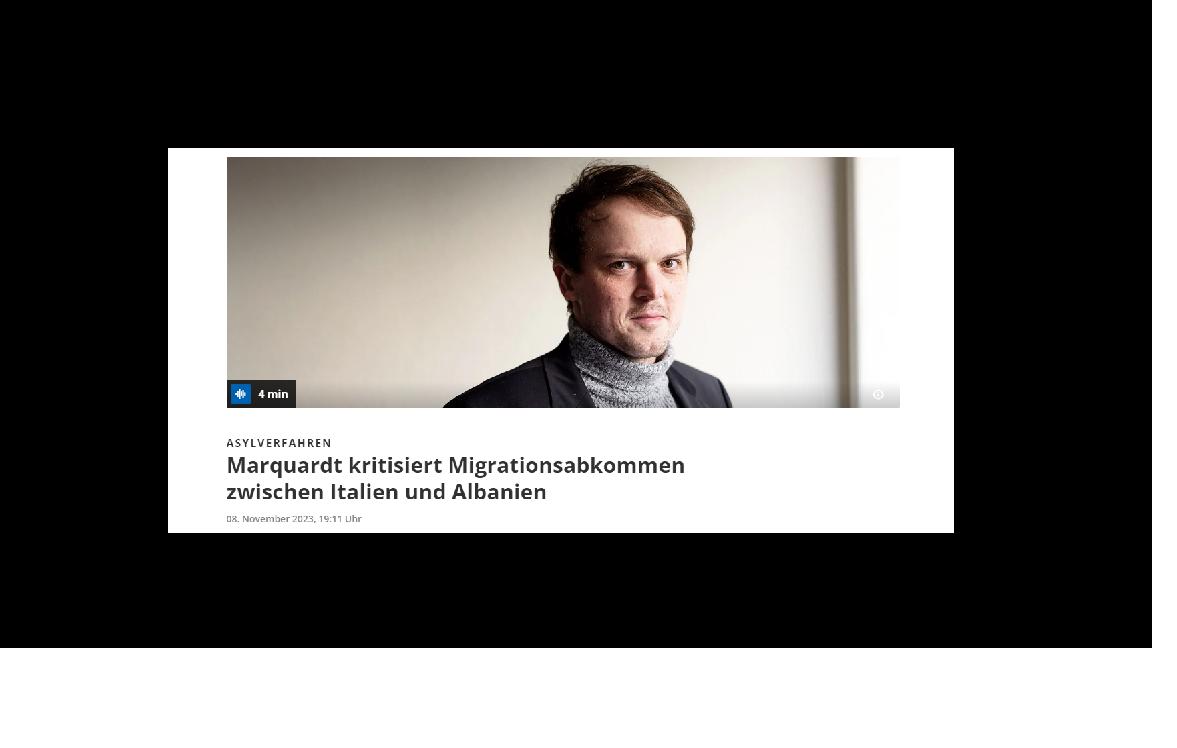NDR Info: Warehouses are not a solution
In an interview with NDR, I criticized the fact that mass camps at the external borders do not solve any problems and why we cannot wipe away the complex challenges with simple answers. Above all, the reform will create a bureaucratic monster and hardly improve the situation in the municipalities or the chaos at the external borders. Here you can listen to the interview.









